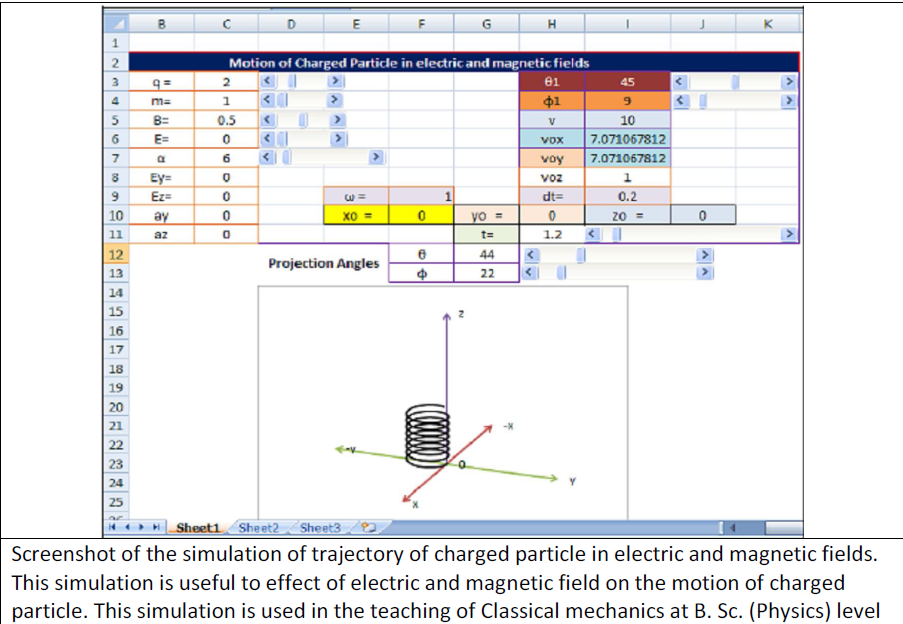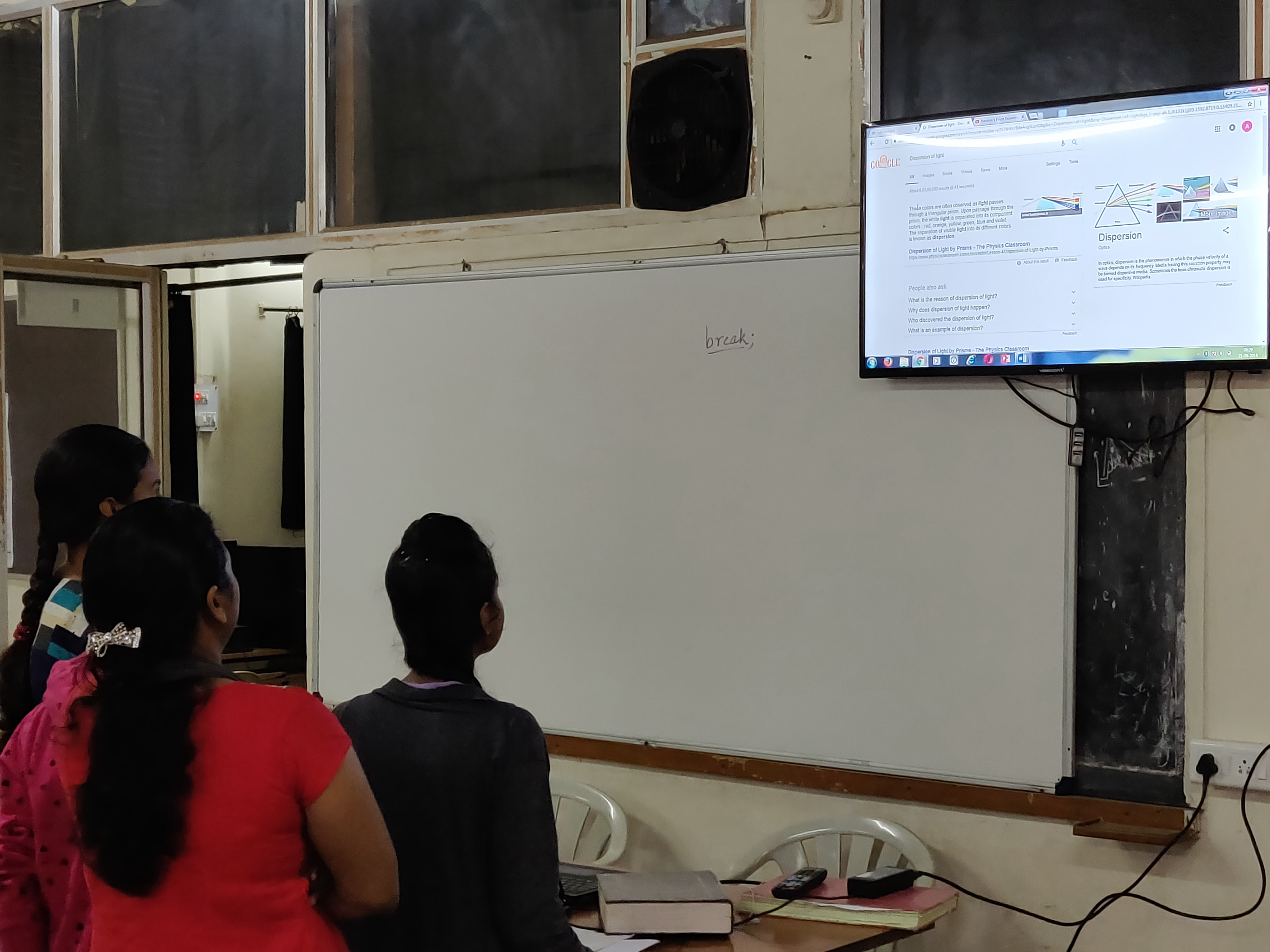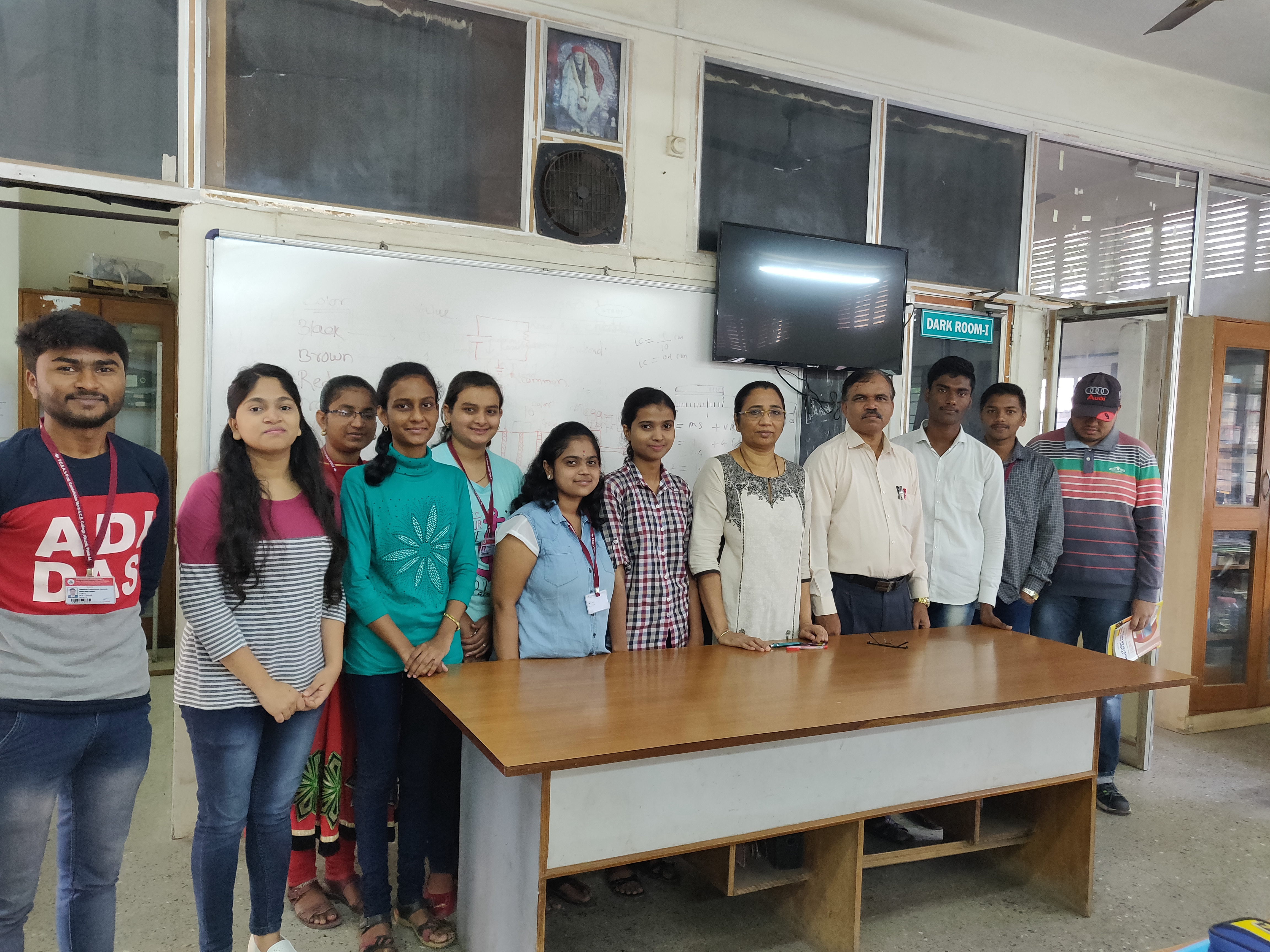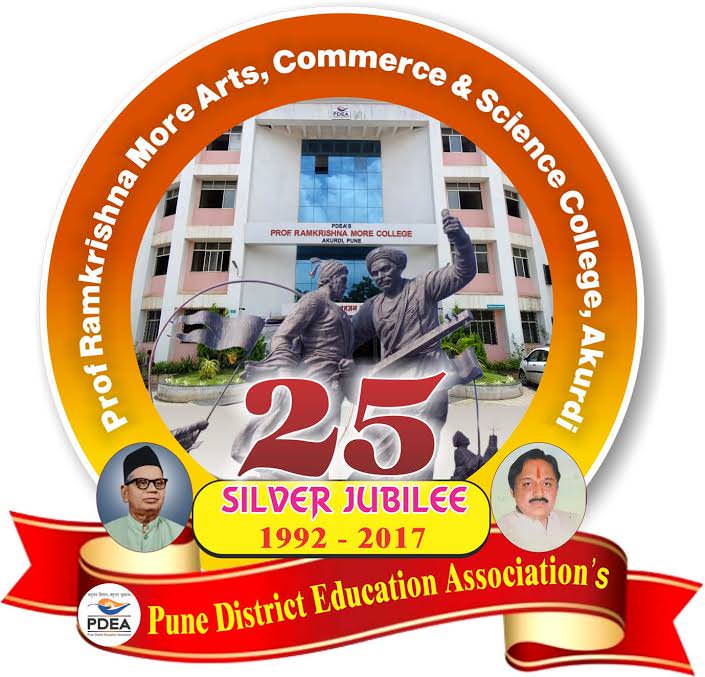Welcome to Department of Physics
'E-Learn 2013: Presentation at Las Vegas USA'
'IETC Istanbul 2011 Presentation'
'E-LEarn 2008 Outstanding paper award'

'Simulation 1'

'Student Activity'

'Students'
Physics department is one of the largest and important department in Prof. Ramkrishna More Arts, Commerce and Science College, Akurdi, Pune. Physics department is established in 1992. The Department of Physics (part of the Faculty of Science) is responsible for undergraduate and Postgraduate education in the College campus. The department has upgraded its laboratory and research facilities by funds of DST-FIST program and DBT-Star College Scheme.
| Name of the Program | B.Sc. Physics Honors |
| Duration | 4 Years (NEP) |
| Syllabus | NEP Structure and Syllabus |
| Name of the Program | B.Sc. Physics |
| Duration | 3 Years (CBCS Credit System) |
| Syllabus | F. Y. B. Sc., S.Y. B. Sc., T.Y.B.Sc. |
| Name of the Program | M.Sc. Physics |
| Duration | 2 Years (Credit System) |
| Syllabus | SPPU University Syllabus |
| Name of the Program | Ph.D. (Physics) |
| Duration | Research Program |
Vision
Providing quality physics education at undergraduate and postgraduate level and equip them with skills for research and profession.
Youtube Channel:
https://www.youtube.com/channel/UC0JEEPxV7moBuHT-TdrbbTw
Mission
- To Provide high quality physics education through teaching and research to students and equipping them to master the concepts in physics and apply successfully to real world problems.
- To provide students with competancy to handle quality equipments in Physics to kindle their interest in cutting edge research areas.
- To create quality infrastructure in the department for meeting the above mission.
Under Skill Enhancement courses Physics department is starting "Python Programming and Scientific Datat Analysis using Python" for T. Y. B. Sc. Physics from year 2021-22. This course is useful for students in Data Science.
From the academic year 2023-24, the college received Autonomous status. The department iimplemented NEP 2020 and designed new curriculum. Department introduced following skill courses
1. Python programming
2. Arduino programming and Internet of things
3. Advanced Excel for Scientific computing
Facilities
List of research equipments procured through various funding agencies:
- High temperature furnace with temperature controller
- Centrifugal machine
- Spray pyrolysis unit
- Spin Coating unit
- Magnetic Susceptibility measurement unit
- Linear Air track with computer interface
- Zeeman Effect complete set with computer interface
- Millikan Oil drop with computer interface
- Newton's ring apparatus with Labquest computer interface
- BH curve apparatus with computer interface.
- Spectrometer with dual angle measurement.
- Digital Storage oscilloscopes.
- Constant deviation spectrometer with microcontroller kit.
- Electron Spin Resonance apparatus
- Frank Hertz Experiment
ICT facility available in the department:
- Labview software with DAQ
- MATLAB software
- Science Cube computer interface for experiments with sensors like voltage, current, temperature, light, force, distance, humidity.
- Microcomputer based laboratory tools are used for which department has facility
- Fourier data loggers for experiments with sensors like voltage, current, temperature, light, force, distance, humidity.
- Einstein Labmate for experiments with sensors like voltage, current, temperature, light, force, distance, humidity.
- Labquest mini interface developed by Vernier.
- Phoenix interface for experiments
- Virtual experiements on spring mass system, pendulum and optics developed by faculty of the department
- Using these interfaces department has developed many computer interface experiments which are used in the laboratory
Equipments and Experiments developed in Laboratory:
- Cyclic voltameter with computer interface
- Spin coating apparatus for thin films
- Force pendulum with computer interface video
- Freely falling experiment with computer interface
- Computer interface experiment for study of kinematic equations
- Thermionic emission kit
- Skin depth experiment kit
- Core losses of transformer kit
Simulations developed by Faculty
- Spring mass system (vertical and horizontal)
- Simple pendulum
- Simple pendulum with linear and non-linear motion
- Oscillating electric dipole in electric field
- Potential energy curves and force
- Electric field and superposition principle
- Motion of charged particle in electric and magnetic field Image
- Lissajous figures
- Harmonic oscillator wave function and probability density curves Image
- Perturbation of harmonic oscillator
- Superposition of wave function in infinite square well potential
- Verification of uncertainty principle for harmonic oscillator and particle in infinite dip potential well
- Representation of complex number algebra
- Bohr's atom
Video Lectures and PowerPoints developed by Faculty
- Simple Harmonic Motion https://www.slideshare.net/popattambade
- Electrostatics
- Dielectrics Screenshot Video lecture
- Crystal structures
- Forced pendulum
- Bohr's model
Research Areas
- Physics Education
- Computational Physics
- Material Science
- Dye Sensitized Solar Cells
Teaching Methods
Studying Physics at Department of Physics, Prof. Ramkrishna More College, Akurdi, you will learn from a wide variety of teaching methods:
Lecture Methods
Lectures last 48 minutes and there will be three per week for each first year courses and four lectures for each second and third year courses. Lectures take place in classrooms, with one teacher responsible for each course.
Laboratory Work
There are practical course assigned to each year of study. First year and seond year undergraduate will have one practical course. Third year undergraduate will have three practical courses including project work. During practical work student will have one practical session per week for each practical course. Project work assigned for third year undergraduate students which include latest topics from physics. Additional practical and demonstrations are arranged for students for better understanding of physics concepts.
Group problem solving
Since the primary goal in undergraduate physics course is to help students build functional understanding in physics, we focused on problem solving skills. For this purpose we pose problems in physics to students. Groups are formed among students and the groups apply strategy in solving problems both in classroom and laboratory. Teachers analyse problems solved by the groups.
Experiential Learning
Field trips are arranged for the students. Workshops on building power supply and telescope making are arranged for the students. Science exhibitions are arranged for the students.
ICT in Physics Teaching-Learning
YouTube Channel
Visit the YouTube Channel PST EduMedia for videos on Physics
Link: https://www.youtube.com/results?search_query=pst+edumedia
ICT resources
Physics Department have LCD projector with white board and LCD TV facility.
PowerPoint presentations are used for teaching purposes. Video lectures by different eminent teachers are shown to the students during practical sessions. Videos of practical demonstrations shown to the students
Computer interfaced experiments are used by the faculty and students. Physics department has variety of data loggers which are for computer interface experiments.
Students use these data loggers for practical purposes or for project work.
Computer simulations which are developed by faculty are used in the classroom and laboratory. Students have also developed computer simulations as their project work.
Virtual Lab
Physics Department is associated with Virtual Lab of Amrita Vidyapeethm and IITs
Faculty and Students studying in Physics have UserID and passwords. They can perform virutal experiments using this Virtual Lab and then actual experiment.
Link: http://vlab.amrita.edu/?sub=1
Students and teachers have to login on the above page to see and perform virtual experiment with their UserID. Students and Teachers shoud also give feedback.
Google Classroom
Google classroom facility is used by the faculty. Students are enrolled in the google classroom. Teaching-learning material, PowerPoint presentations are shared through google classroom. Students also share their work through this classroom.
Link: Google Classroom Link
e-PG Pathshala
e-PG Pathshala is an initiative of the MHRD under its National Mission on Education through ICT (NME-ICT) being executed by the UGC. Following is the link for e-PG Pathshala
Link: Physics courses from inflibnet
Students can download notes from this link and they can also watch video lectures.
Faculty Achievement
Dr. P. S. Tambade received Outstanding Paper Award for the paper entitled "Investigating effect of Computer Simulations in Physics Teaching at Undergraduate Level" presented in E-Learn 2008 ? World Conference on E-Learning in Government, Corporate, Health care and Higher education held at Las Vegas, Nevada, USA from 21st Nov. to 25th Nov. 2008. https://www.learntechlib.org/primary/p/29940/
Dr. P. S. Tambade received Dipastambha Award for best Educational Services on 18th July 2010 by Sahakary Seva Sanstha, Manor, Dist- Thane : NGO working in the field of tribals in India.
Student Achievement
1. Gautam Balasaheb Jawale (B. Sc. Physics) received Savitribai Phule Pune University "Shelar Mama Gold Medal" in the year 2009-10.
2. Miss. Kajal Mahajan (B. Sc. Physics) recived Savitribai Phule Pune University "President Dr. Shankar Dayal Sharma Gold Medal" in the year 2018-19 and also received gold medal for first rank in B. Sc. SPPU examination in the year 2018-19.

